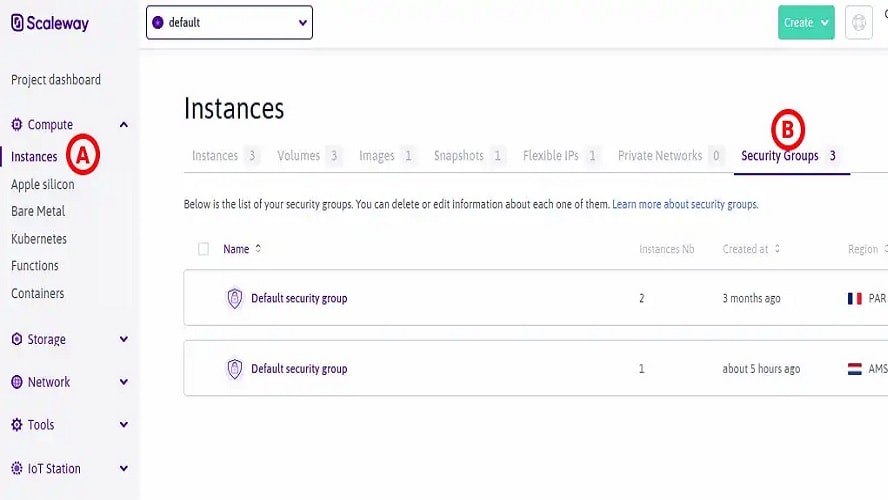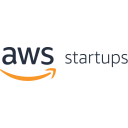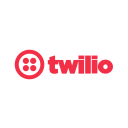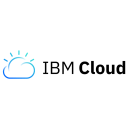Scaleway vs AWS: Which tool should I use?
- 01Scaleway vs AWS Activate: overview
- 02What's the difference between Scaleway and AWS Activate?
- 03Scaleway pros and cons
- 04AWS Activate pros and cons
- 05Scaleway compared to AWS Activate
- 06AWS Activate compared to Scaleway
- 07Features comparison
- 08Scaleway vs AWS Activate: Which is the best for your business?
- 09Promotions on Cloud Computing software
- 10Alternatives to Scaleway & AWS Activate
Save up to $300,000 on AWS Activate
Save up to $300,000 on AWS Activate
Cloud computing services are a fundamental cornerstone for modern businesses, offering scalable and cost-effective solutions for hosting applications, managing data, and optimizing infrastructure. However, with a plethora of options in the cloud computing landscape, selecting the right provider can be a daunting task.
To assist you in making an informed decision, we present a comparison between two prominent cloud service providers, Scaleway and AWS (Amazon Web Services). In this article, we will explore their respective features, performance capabilities, pricing models, and scalability options. Understanding these distinctions can empower you to choose the cloud solution that best aligns with your organization's specific needs and objectives.
Scaleway vs AWS Activate: overview
Scaleway and AWS (Amazon Web Services) are formidable contenders in the world of cloud computing and infrastructure services, and each brings its unique strengths to the table.
Scaleway is known for its simplicity and user-friendly approach. It offers a streamlined experience for managing cloud resources, making it an attractive option for startups and small businesses looking for straightforward cloud solutions. On the other hand, AWS is a behemoth in the industry, known for its vast array of services and global reach. It provides an extensive suite of cloud offerings, including advanced machine learning, data analytics, and Internet of Things (IoT) services.
In this Scaleway vs. AWS comparison, we will delve deeper into their respective features, pricing models, and scalability options to help you make an informed decision when choosing the right cloud service provider for your specific requirements.
What's the difference between Scaleway and AWS Activate?


Scaleway and AWS (Amazon Web Services) are two prominent players in the realm of cloud computing, offering distinct approaches and features to cater to a wide range of users and businesses.
Scaleway is tailored for small and medium-sized businesses (SMBs) and startups, with a strong focus on simplicity and affordability. It provides a user-friendly platform for managing cloud resources with ease. One notable feature is its transparent flat-fee pricing model, allowing users to access services like compute instances, storage, and networking without worrying about variable costs. This straightforward approach simplifies budgeting, making it an attractive choice for businesses with predictable resource needs.
On the other hand, AWS is a comprehensive suite of cloud services designed to accommodate businesses of all sizes, from startups to large enterprises. AWS offers a vast array of services, including compute, storage, databases, machine learning, analytics, and more. AWS's approach is to provide a wide range of tools, enabling users to pick and choose the services that best fit their specific requirements. While AWS offers flexibility and scalability for complex workloads, its pricing model can be more variable, with costs based on actual usage and the specific services deployed.
In terms of service libraries, Scaleway and AWS both offer a variety of templates and resources. Scaleway's offerings are designed to be user-friendly and accessible, suitable for SMBs and those new to cloud computing. AWS, as a comprehensive cloud platform, provides an extensive array of templates and resources that cater to diverse use cases.
Lastly, the pricing strategies of Scaleway and AWS differ significantly. Scaleway adopts a flat-fee pricing model, where users pay a fixed monthly fee for access to a predefined set of resources. This approach provides cost predictability, with unlimited access to resources regardless of usage. In contrast, AWS's pricing is based on actual usage and the specific services employed.
20-50% off your monthly spend and up to $2,000 in credits on AWS Activate
Get 20-50% off your monthly spend and up to $2,000 in credits on AWS Activate and up to $300,000 savings with Secret.
Scaleway pros and cons
What are the advantages of Scaleway?
- Cost-effective solution: Scaleway is renowned for its budget-friendly approach, making it an ideal choice for startups and small businesses looking to optimize their resources without incurring hefty expenses.
- Simplicity and ease of use: Scaleway's user-friendly interface and intuitive management tools make it accessible for users of varying technical expertise. The platform's straightforward design allows for streamlined provisioning of resources, minimizing the learning curve and enabling quicker deployment of applications.
- Variety of compute options: Scaleway offers a diverse range of compute options, from virtual machines to managed Kubernetes clusters, catering to different workload demands.
- European data centers: For businesses with data residency and compliance requirements in Europe, Scaleway's data centers situated across the continent provide a strategic advantage. The proximity of data storage can enhance performance and address data sovereignty concerns.
- Innovative features: Scaleway often introduces innovative services and features, such as ARM-based instances and dedicated ARM64 processors, providing opportunities for experimentation and optimization.
What are the disadvantages of Scaleway?
- Limited global reach: While Scaleway's data centers strategically cover Europe, its global presence is more limited compared to other major cloud providers like AWS or Azure.
- Smaller ecosystem: Scaleway's ecosystem, while growing, might not offer the same breadth of services and integrations as larger competitors. Businesses requiring a vast selection of specialized tools and third-party applications might find Scaleway's ecosystem comparatively narrower.
- Support quality: Some users have reported mixed experiences with Scaleway's customer support. While the company offers various support tiers, the quality and responsiveness of support services can be inconsistent, potentially leading to delays in issue resolution.
- Scalability challenges: While Scaleway provides scalable solutions, businesses with rapid or unpredictable growth might encounter scalability challenges.
- Less established reputation: Compared to industry giants like AWS, Google Cloud, and Azure, Scaleway has a relatively less established reputation in the cloud services arena.
Compare Scaleway to other tools
AWS Activate pros and cons
What are the advantages of AWS Activate?
- Comprehensive service offering: AWS provides an extensive range of services spanning computing, storage, databases, networking, machine learning, analytics, and more.
- Global reach and availability: AWS boasts a vast network of data centers located across multiple regions worldwide. This global presence ensures low-latency access and high availability.
- Scalability and elasticity: AWS's auto-scaling capabilities allow businesses to dynamically adjust resources based on demand, ensuring optimal performance and cost-efficiency.
- Rich ecosystem and integrations: AWS has a robust ecosystem of third-party integrations, tools, and solutions. This ecosystem provides businesses with the flexibility to leverage a wide range of services and technologies, enhancing innovation, efficiency, and customization.
- Reliability and security: AWS is known for its robust security measures and compliance certifications. It offers features like Identity and Access Management (IAM), encryption, and monitoring tools.
What are the disadvantages of AWS Activate?
- Complexity and learning curve: Due to the extensive array of services and features, AWS can be complex for newcomers to navigate.
- Cost management: While AWS offers cost-effective solutions, the pricing structure can be intricate and dynamic. Businesses need to closely monitor their resource usage and optimize their configurations to avoid unexpected costs.
- Vendor lock-in: The extensive use of AWS services may lead to vendor lock-in, making it challenging to migrate to other platforms in the future.
- Limited personalized support: AWS provides various support plans, but personalized support options may come at an additional cost.
- Service outages: While AWS has a strong track record of uptime and reliability, occasional service outages can still occur. Businesses heavily reliant on AWS should have contingency plans in place to mitigate the impact of potential disruptions.
Compare AWS Activate to other tools
Scaleway compared to AWS Activate
When comparing Scaleway and AWS, Scaleway distinguishes itself with its focus on simplicity and cost-effectiveness in cloud computing services. It appeals to users who want a straightforward and budget-friendly cloud platform. Scaleway's transparent pricing structure, with competitive rates and predictable monthly fees, is particularly attractive to businesses seeking cost-effective cloud solutions without the complexity of variable pricing models.
While both Scaleway and AWS are robust cloud providers, the choice between them hinges on your specific needs. Scaleway offers a user-friendly and cost-effective solution with a focus on simplicity and affordability, making it an ideal choice for those who prioritize ease of use and budget-conscious cloud computing solutions.
Is Scaleway better than AWS Activate?
Deciding whether Scaleway is better than AWS depends on your specific cloud computing needs. Scaleway can be a strong choice for users who prioritize simplicity and cost-effectiveness in their cloud services. Its straightforward pricing and user-friendly interface make it an attractive option for those who want to deploy and manage cloud resources with ease.
The choice between Scaleway and AWS ultimately depends on the depth of functionality, ease of use, and specific features your cloud computing strategy demands. If simplicity and budget-consciousness are paramount, Scaleway may be the better choice. However, for enterprises with intricate cloud needs and the desire for a broad spectrum of cloud services, AWS might be the preferred option.
What is Scaleway best used for?
Scaleway is primarily designed for cost-effective and straightforward cloud computing solutions. It excels in providing users with a simplified approach to deploying and managing cloud resources, making it an excellent choice for businesses and individuals who prioritize budget-consciousness and ease of use.
With its transparent pricing structure and user-friendly interface, Scaleway empowers users to access cloud computing resources without the need for extensive technical expertise. It's best used when you want to leverage cloud services for your applications and workloads while keeping costs in check and maintaining simplicity and accessibility in your cloud computing efforts. Whether you're running web applications, hosting websites, or managing development environments, Scaleway provides a streamlined and budget-friendly solution.
Can Scaleway replace AWS Activate?
Whether Scaleway can fully substitute AWS for your cloud computing needs depends on the specific requirements and scale of your projects.
If your primary considerations are cost-effectiveness, simplicity, and you have relatively straightforward cloud computing needs, Scaleway can serve as a compelling alternative to AWS. Scaleway's transparent pricing and user-friendly interface make it an attractive choice for users who want to deploy and manage cloud resources without excessive complexity.
However, if you rely heavily on AWS's extensive ecosystem of cloud services, scalability, and a vast array of integrations, transitioning to Scaleway may not cover all your cloud computing requirements. AWS's comprehensive suite of services caters to enterprises with intricate and diverse cloud computing needs, including advanced infrastructure, machine learning, and big data applications.
Is Scaleway cheaper than AWS Activate?
When comparing Scaleway and AWS in terms of pricing, there are significant differences to take into account. Scaleway's pricing structure is known for its transparency, featuring competitive rates and predictable monthly fees. This straightforward pricing approach can be cost-effective for businesses with varying cloud computing needs, as there are no hidden or variable charges that can surprise you.
On the other hand, AWS's pricing can become more complex as your usage and resource demands increase. AWS utilizes a tiered pricing model with numerous services, and it's essential to closely monitor your usage to avoid unexpected costs. In this regard, Scaleway's pricing options, with their clear and predictable monthly fees, may prove to be a more cost-effective choice compared to AWS, particularly for businesses aiming to manage and control their cloud costs efficiently.
Is there a better Cloud Computing software than Scaleway?
While Scaleway is known for its cost-effectiveness and simplicity in cloud computing services, it's essential to consider whether there might be a more suitable software or cloud provider for your specific requirements.
There are several notable alternatives to Scaleway in the cloud computing space, including AWS, Microsoft Azure, Google Cloud Platform, and DigitalOcean.
The choice of cloud provider depends on your organization's unique cloud computing goals, scalability needs, and feature requirements. While Scaleway excels in its straightforward pricing and user-friendly approach, other providers may offer a more extensive range of services, advanced features, or specialized solutions that better align with your cloud computing strategy and objectives.
AWS Activate compared to Scaleway
AWS distinguishes itself with its extensive array of cloud computing services and solutions, making it a compelling choice for businesses and organizations seeking a robust and scalable cloud platform. AWS's pricing structure offers a wide range of options, including pay-as-you-go and reserved instance plans, catering to users with diverse cloud computing needs and budgets.
While both AWS and Scaleway excel in cloud computing, the choice between the two depends on your specific requirements. AWS provides a comprehensive and versatile solution for businesses and organizations looking to host a variety of applications, leverage advanced cloud services, and integrate with a vast ecosystem of third-party software to enhance their cloud infrastructure and operations. Scaleway, on the other hand, offers a simplified and cost-effective approach to cloud computing, making it an appealing choice for users who prioritize ease of use and budget-consciousness in their cloud solutions.
Is AWS Activate better than Scaleway?
The question of whether AWS is better than Scaleway centers around your specific cloud computing needs and priorities. AWS offers a vast array of services and solutions, making it a robust choice for businesses seeking a comprehensive and highly scalable cloud platform. If you require advanced cloud capabilities, a wide range of integrations, and access to a vast ecosystem of third-party software, AWS may be the preferred option.
However, it's important to recognize that Scaleway has its own set of strengths, particularly in simplicity, cost-effectiveness, and user-friendliness in cloud computing. If you prioritize straightforward pricing, ease of use, and budget-consciousness in your cloud solutions, Scaleway is a compelling choice for meeting your cloud computing requirements. Ultimately, the decision between AWS and Scaleway depends on the specific features, scalability, and cost considerations that align with your cloud computing strategy and objectives.
What is AWS Activate best used for?
AWS is a versatile and comprehensive cloud computing platform designed to meet the complex and varied needs of businesses and organizations in the digital age. It offers a vast array of services and solutions that cater to a wide range of applications and workloads.
AWS is best used for hosting web applications, managing data, implementing machine learning and AI, content delivery, IoT, DevOps, security, compliance, and hybrid cloud solutions. Its versatility and extensive service offerings make it a go-to platform for organizations with diverse technology needs, providing the scalability and flexibility required for today's digital landscape.
Can AWS Activate replace Scaleway?
AWS and Scaleway are both cloud computing providers, but whether AWS can effectively replace Scaleway depends on your specific cloud computing needs and priorities.
AWS offers an extensive array of cloud services and solutions, catering to a wide range of applications and workloads. It is suitable for businesses with complex and diverse cloud computing requirements, including scalability, advanced features, and a vast ecosystem of third-party integrations.
If your cloud computing strategy relies heavily on advanced cloud capabilities, a broad range of services, and integration with a variety of third-party tools, AWS may be a suitable replacement for Scaleway. However, if you prioritize simplicity, cost-effectiveness, and user-friendliness in your cloud computing solutions, Scaleway may remain the preferred choice. The decision between AWS and Scaleway ultimately hinges on the specific features, scalability, and cost considerations that align with your cloud computing strategy and objectives.
Is AWS Activate cheaper than Scaleway?
When evaluating the cost comparison between AWS and Scaleway, it's important to recognize that AWS's pricing structure tends to be more complex, and costs can vary depending on your usage patterns and service selections.
AWS typically employs a pay-as-you-go model, which means you pay for the specific resources and services you use. While this flexibility can be advantageous for some users, it can also lead to variable and sometimes unpredictable costs, especially if your cloud usage fluctuates significantly. On the other hand, Scaleway is known for its transparent and predictable pricing with fixed monthly fees for its services. This straightforward pricing approach can often result in a more budget-friendly and predictable cost structure.
Is there a better Cloud Computing software than AWS Activate?
AWS is a widely recognized and comprehensive cloud computing platform, but it's crucial to consider whether there might be a more fitting cloud provider for your particular cloud computing needs.
Several notable alternatives to AWS in the cloud computing space include Microsoft Azure, Google Cloud Platform, IBM Cloud, and Oracle Cloud. The selection of a cloud provider hinges on your specific cloud computing goals, workload requirements, budget constraints, and the features that best align with your cloud strategy and objectives.
20-50% off your monthly spend and up to $2,000 in credits on AWS Activate
Get 20-50% off your monthly spend and up to $2,000 in credits on AWS Activate and up to $300,000 savings with Secret.
Features comparison
AWS has Superior Content Distribution Capabilities than Scaleway

AWS enjoys a distinct advantage in content distribution, offering startups a seamless global content dissemination solution. Its content distribution service enables startups to effortlessly reach users worldwide, ensuring optimal speed and cost-effectiveness. For example, a video streaming startup utilizes AWS's content delivery network (CDN) to swiftly deliver high-definition videos to viewers across continents.
In contrast, while Scaleway boasts multiple data centers for geographic redundancy and swift data access, it does not emphasize content distribution as a core feature. Nevertheless, these data centers empower an e-commerce platform to ensure speedy and reliable access to product images and descriptions for customers.
Scaleway Outshines AWS for User-Friendliness

When evaluating the user-friendliness of Scaleway and AWS, it's evident that both platforms offer accessible interfaces. However, Scaleway distinguishes itself with exceptional user-friendliness.
Scaleway's interface stands out for its intuitive design and meticulous organization, creating an environment conducive to effortless navigation. This intuitive layout greatly benefits novice users. For example, a local photography studio can swiftly set up an online portfolio using Scaleway's user-friendly interface, requiring minimal technical expertise.
Conversely, AWS boasts a robust interface, but its extensive range of service options and configurations can occasionally overwhelm users. A tech startup, while harnessing AWS's power to deploy machine learning models, might find the multifaceted interface a bit intricate for everyday operations.
Scaleway Server Deployment Excels Ahead of AWS

When it comes to server deployment speed, Scaleway emerges as a frontrunner. Its proficiency in swift server deployment is evident through an intuitive user interface. Entrepreneurs leverage this speed by launching new servers within seconds, allowing startups to establish their digital infrastructure rapidly. For example, an e-commerce platform can efficiently deploy multiple servers to handle traffic surges during a flash sale.
AWS, while offering a comprehensive suite of infrastructure services, doesn't emphasize server deployment speed to the same degree. A software development agency, using AWS for app development, may find its deployment process thorough but not as rapid as Scaleway's.
AWS’s Computing Powers Outperform Scaleway’s

AWS stands out as a dominant force in computing power, offering unparalleled scalability and adaptability. While Scaleway excels in rapid server deployment and SSD-powered servers, AWS's strength lies in its versatile computing capabilities. AWS's pay-as-you-go model shines when a data-intensive research project dynamically scales its computing resources during peak analysis periods, optimizing efficiency and cost-effectiveness.
In contrast, Scaleway accelerates server deployment, making it ideal for businesses requiring swift resource provisioning. For example, a content delivery startup hosting bandwidth-intensive media relies on Scaleway's rapid server setup to ensure seamless streaming experiences.
Scaleway Data Security Features Prove More Enhanced than those of AWS

Scaleway leads the way in data security, providing robust measures to safeguard sensitive information. An exemplar of this commitment is Scaleway's private networking feature, which allows users to establish secure private networks, enhancing confidentiality between servers. For example, a financial institution uses Scaleway's private networking to fortify communication channels, ensuring the secure transmission of sensitive customer data.
While AWS offers a wide range of infrastructure services, its focus on secure private networking between servers isn't as prominent. In contrast, a cloud-based healthcare platform prioritizes data integrity through Scaleway's private networking, creating isolated environments for secure medical data processing.
AWS has the Upper Hand with a More Extensive Library of Integrations

AWS and Scaleway offer options for third-party app integrations, but AWS excels with its extensive integration library. AWS's robust suite covers a wide array of vital third-party applications, ensuring seamless workflows. For instance, a software development company can streamline DevOps using AWS's integration with popular continuous integration/continuous deployment (CI/CD) tools.
Scaleway provides integration capabilities, but its repertoire is narrower. A regional e-commerce startup, using Scaleway's integration with local payment gateways, might find it suitable for simpler integration needs.
AWS's library empowers businesses to construct intricate, tailored workflows. In contrast, Scaleway's integrations are better suited for uncomplicated scenarios. For businesses aiming to create comprehensive, interconnected systems, AWS's diverse integration options hold a distinct advantage.
Scaleway and AWS Provide Equally Impressive Storage Capabilities

Scaleway and AWS are on equal footing when it comes to storage capabilities. Scaleway's SSD-powered cloud servers, combined with scalable storage options, create a robust framework for handling extensive data without compromising performance. For instance, a video streaming startup effectively uses Scaleway's storage to host and deliver high-definition content to a global audience.
AWS offers versatile cloud storage services with a comprehensive suite of features, including data management, backup, and seamless migration. A healthcare institution securely stores and accesses electronic medical records, ensuring compliance with industry regulations, thanks to AWS's storage capabilities.
Subscribe to our newsletters.
No FOMO here. Stay up-to-date on all the latest deals and news with our monthly newsletter straight to your inbox like 125,000+ entrepreneurs (+ Get 10% off on on our Premium Membership!)
Scaleway vs AWS Activate: Which is the best for your business?
Scaleway is the best tool for you if:
- You value straightforward cloud solutions with transparent pricing, ideal for budget-conscious businesses
- Swift server deployment aligns with your need for quick resource provisioning, simplifying your operations
- Geographic redundancy and data center network suit your data accessibility and redundancy requirements
- You prioritize user-friendliness and ease of use in managing your cloud infrastructure
- Scalable storage options combined with SSD-powered servers meet your data storage and performance needs efficiently
AWS Activate is the best tool for you if:
- You require an extensive range of cloud services for diverse and complex computing needs
- Scalability and adaptability are critical, allowing you to tailor resources precisely to your requirements
- You value a comprehensive suite of features, including data management, backup, and migration options for robust data control
- Security and compliance are paramount, with AWS's rigorous measures ensuring data integrity and regulatory adherence
- You seek to optimize operational efficiency through the elasticity of computing power, efficiently managing resources for multifaceted projects
20-50% off your monthly spend and up to $2,000 in credits on AWS Activate
Get 20-50% off your monthly spend and up to $2,000 in credits on AWS Activate and up to $300,000 savings with Secret.
Alternatives to Scaleway & AWS Activate
Promotions on Cloud Computing software
Start saving on the best SaaS with Secret.
Secret has already helped tens of thousands of startups save millions on the best SaaS like Scaleway, AWS Activate & many more. Join Secret now to buy software the smart way.














